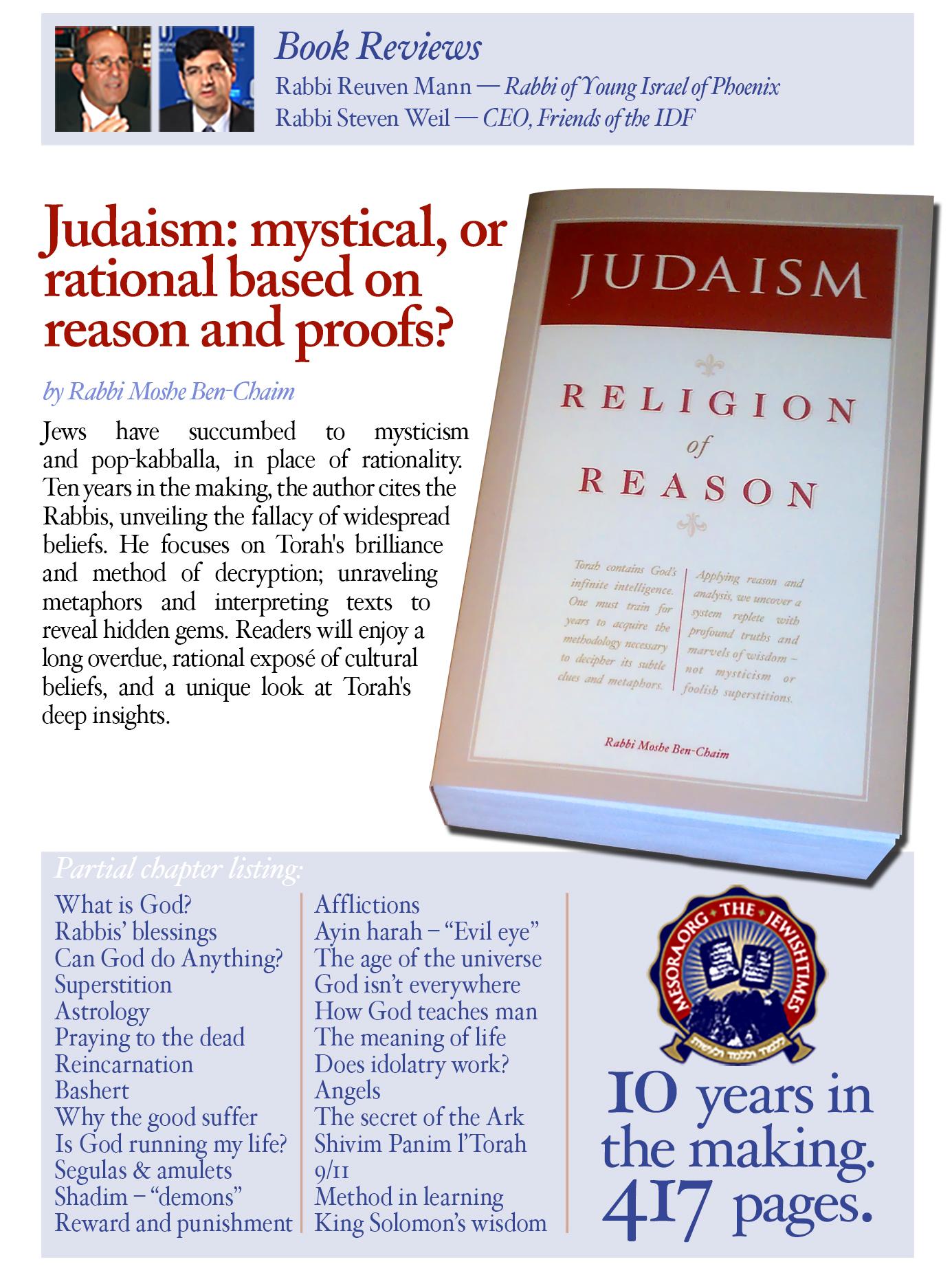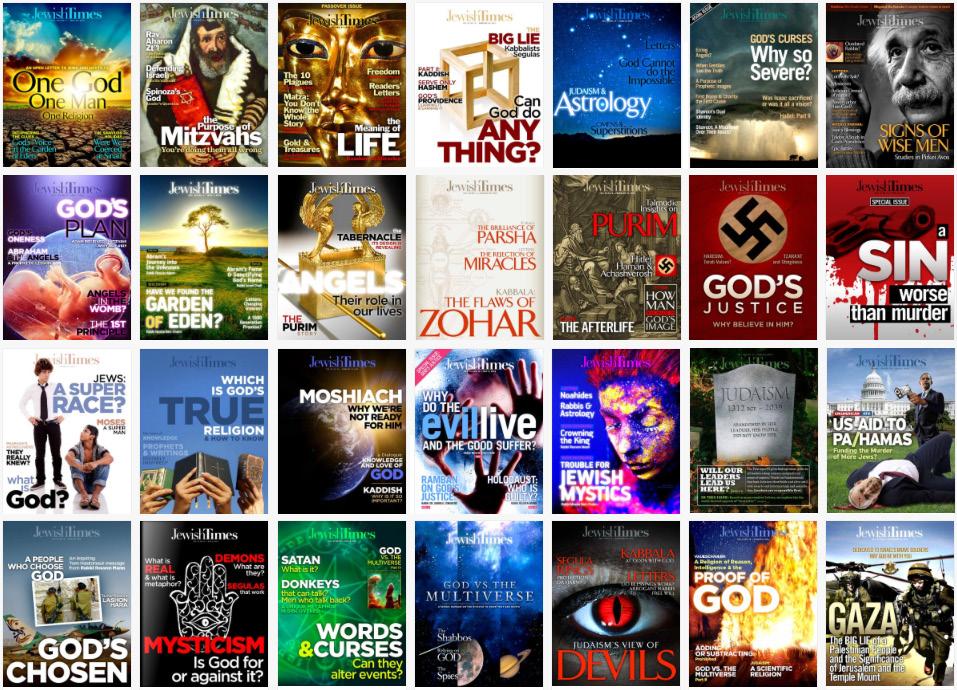















Just click any icon in








THOUGHTS
Recent Torah readings are reviewed
By this time next week, study and know the Mezuza’s Torah sections to understand what ideas God deems we review daily.
RABBI MOSHE BEN-CHAIM
READER: Dear Rabbi, In reading the Jewish Times for October 10, 2025 about Koheles and King Solomon, I beg to differ slightly in your opinion of King Solomon and his referencing of “futilities” and “futilities of futilities.”
Yes, King Solomon asked God for wisdom and he was given it, using his wisdom righteously for his people and kingdom. However gifted, he still had to address—within himself—desires and their potential influence on his behavior. While speaking of these [in Koheles], I do not agree that he was simply giving voice to common man’s feelings, [as you suggested]. Here is a brilliant man, son of King David, who has amassed a great fortune and fulfilled every apparent desire (futility) and yet, this great man succumbs to the futilities of futilities by engaging in his love for foreign women who not only brought their gods with them but eventually turned
Solomon's heart astray from only worshipping the God of Israel. These included the daughter of Pharaoh, Moabite, Amonite, Edomite, Sidonian and Hittite women from the nations that God had warned the Israelites not to join with them. Solomon did so anyway in fulfillment of his love of foreign women. To marry, bringing these women with foreign gods into the King's household, was a huge violation of the first commandment against worshipping other gods and the other was Solomon's refusal to heed God's warning about foreign women. These two are King Solomon's futilities of futilities for in doing so, he made the fulfillment of his temporal desires more important to him than God.
One can only imagine the genuine remorse he must have felt when finally facing himself. God had given him rulership of his kingdom, wanting for nothing, and yet it wasn't enough.
If anything, in reading Koheles over Sukkot, it seems that Solomon was also a man who related intimately to the human tendency of allowing futilities to saturate the mind and heart until those obsessions slowly remove God from relational primacy.
God did not choose men of perfection, He chose men, some of whom would face themselves and repent before God setting a powerful example for all of us throughout the generations.
Shalom, Gabrielle
RABBI: The rabbis teach that Solomon did not serve idols (Tal. Shabbos 56b). Metsudas Dovid states that Solomon’s failure to deter his wives’ from idolatry is what is meant by “Solomon building Ashtoreth, the abomination of the Sidonians” (II Kings 23:13). But King Solomon never built idolatrous structure. Why then does the verse depict history as thought he did? This is because God is more exacting with great people and considers their deviations more severe: “The righteous are judged within a hairsbreadth” (Rashbam, Numbers 20:10). This is because God wishes to refine people dedicated to the proper path, as He did with His 10 trials of Abraham. Certain areas of greater perfection are beyond man’s capabilities, and even his knowledge. So God assists great men and women. Chazal say all the matriarchs and Chana were barren because "God's loves the prayers of the righteous." This means God loves the reflection and perfection (i.e., tefilah) of the righteous (matriarchs). God “loving” such an action means God's desire is human perfection. So too here, God is more exacting when the righteous person deviates, i.e., calling Solomon a “builder of idols” even when he did not build them. When one is on the path towards perfection, God assists him or her even further. “On the path one desires to follow, he is led further” (Makkos 10b). One who wants perfection is following God's will, so he has assisted. And one who wants to sin is not prevented so he cannot complain that he could not attain his free will desires. If a person is prevented from sin, he never comes to the realization of the dissatisfaction with that life, and he will always long for it. To help a person discover that fantasies do not satisfy a person in reality, God allows a person to achieve his fantasies. And King Solomon performed this experiment on himself to teach the world this very lesson.
Regarding King Solomon’s experimentation with drunkenness, wealth, servants and luxuries, it was not a weakness of succumbing, but a controlled study of his emotional reactions to share with mankind how empty are the physical pleasures and the chase of ambition and wealth. He used himself as an example of the human failure to attain happiness through all the popular lives common man seeks. He even starts Koheles by stating this experiment:

“I said to myself, “Come, I will treat you to merriment. Taste mirth!” That too, I found, was futile. Of revelry I said, “It’s mad!” Of merriment, “What good is that?” I ventured to tempt my flesh with wine, and to grasp folly, while letting my mind direct with wisdom, to the end that I might learn which of the two was better for men to practice in their few days of life under heaven. I multiplied my possessions. I built myself houses and I planted vineyards. I laid out gardens and groves, in which I planted every kind of fruit tree….Then my thoughts turned to all the fortune my hands had built up, to the wealth I had acquired and won—and oh, it was all futile and pursuit of wind; there was no real value under the sun! (Koheles, chap. 2)
The inclusion of Koheles into Holy Writings teaches that Solomon’s words were divine, and therefore truths. Thus, his experimentation with wealth and pleasures was a proper experiment with which to educate mankind. As Rabbi Israel Chait taught, Solomon was the only human capable of being both the observer, and the subject of experiment.
It is crucial that we don’t read Scripture divorced from studying Oral Law and the rabbis commentaries, as both are vital explanations, without which, we assume wrong conclusions. The study of Scripture alone will lead a person to incorrect ideas. ■



And God said, “Let us make man in our image, after our likeness. They shall rule the fish of the sea, the birds of the sky, the cattle, the whole earth, and all the creeping things that creep on earth” (Gen. 1:26)
Rashi comments:
The Rabbis learned from here the humility of the Holy One, blessed be He. Because man is in the likeness of the angels and they might envy him. Therefore He took counsel with them [1]. And when He judges the kings He likewise consults His heavenly council, for thus we find in the case of Ahab to whom Micha said, “I saw the Lord sitting on His throne, and all the host of heaven standing by Him on His right hand and on His left [2].” Has God, then, a right hand and a left hand? But it means that some stood on the right side to plead in favor of the accused and others stood on the left side to accuse. And similarly we read, “The matter is by the decree of the watchers, and the sentence by the word of the holy ones” [3].
Here also He consulted His heavenly council and asked permission of them, saying to them, “There are in the heavens beings after My likeness; if there will not also be on Earth beings after My likeness, there will be envy among creation” (Sanhedrin 38b).
(CONT. ON NEXT PAGE)
Rashi’s quoted medrash above is quite an intriguing metaphor. We say this is metaphor, as the rabbis did not yet exist to witness such a literal conversation, that they should have a record of it. Furthermore, God and angels are not earthbound that such a conversation could be witnessed by man. So this conversation never occurred, but it was scripted by the rabbis to teach lessons about God’s creation. There a number of questions here:
1) God need not consult with any being, as He has complete knowledge while all others do not. Thus, seeking counsel from the angels makes no sense literally. If so, what is meant by “Let us make man?”
“Us” refers to God Himself, along with the angels.
2) What is meant by God’s “humility”?
3) What is meant by angels being “jealous”?
4) And what is meant by “envy” in creation?
Humility in human terms refers to a person who is concerned for others; he's not self-centered but humbles himself before others. So too, God’s humility refers to God's concern for the best existence for all beings. “Consulting with the angels first before creating man” metaphorically delivers this idea. Angels—like all creations—should exist in an optimal state. God consulting with them about creating man refers to God’s will that man’s creation compliments the angel’s existences. How so? This cannot be understood that God needs advice from any creature. But it means that the angels agree that man must be created, as if God received their approval. What is this agreement?
What is “envy in creation?” The absence of intelligent life in any region of creation would imply God’s indifference to that region, and preference for another…a wrong idea. God would not create any sphere of creation that could not recognize His greatness or contribute to it, for all which God created must contribute to intelligent beings being amazed at God and praising Him. Of course, such praise is for themselves, as God does not benefit from His creations. Creation embodies great brilliance, precisely so intelligent beings are impressed by God. Thus, in the physical and metaphysical worlds, there are both men and angels respectively; the only beings with intelligence that can recognize God. God has no needs whatsoever. His creation of angels and mankind is pure kindness: He creates beings who can enjoy recognizing His greatness. We must be tremendously thankful to God for doing this, for creating us and giving us a soul through which we can thoroughly enjoy His wisdom for eternity.
Now, if God did not create man on Earth, Earth would be lacking a creature that could recognize God, for nothing else on earth has a soul through which to recognize God. This is what the rabbis mean by “envy in creation.” This envy refers to favoring one region of creation, and disparaging another part of creation bereft of beings that can recognize and praise God.
Thus, Earth must not be without intelligent beings, as that would violate God’s will that there exist intelligent observers everywhere. Therefore “God consults with the angels” means the angels approve that God should be praised in all corners of the universe, demanding man must be created on Earth. Creating g man, the angels recognize God’s will that He be recognized and praised on Earth–the universe—just as the angels recognize and praise God in the

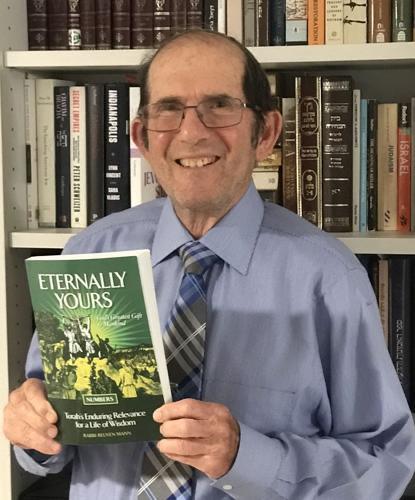
A fundamental doctrine of Judaism is that Hashem created the universe ex nihilo—from nothing. This means that everything in the world, including the human race, was fashioned and granted life by the Creator. To put it as plainly as possible, we are not the cause of our own existence. For that, rather, we are completely dependent on G-d.
That being said, the question arises: do we still need G-d?
Granted that the world could not have come into being without Him, once created, can it persist on its own, independent of His sustaining Providence? In other words, do we still require our Creator?
The Rambam deals with this issue in the opening words of his Mishneh Torah. He says:
“The foundation of all foundations and the pillar of wisdom is to know that there is a Primary Being, Who brought into being all existence. All the beings of Heaven and Earth and everything in between came into existence only from the truth of His Existence. If you could imagine that He did not exist, then nothing else could exist. If, however, you could imagine that everything aside from Him would not exist, He alone would continue to exist and would not be nullified because of their nullification. For all things in the world are dependent upon Him, but He, blessed is He, does not require them or any one of them. Therefore, the truth of His Existence is unlike that of any other being.” (Hilchot Yesodei HaTorah 1:1-3)
This clearly establishes that even after the world came into being, it lacks the ability to endure without the Will of the Creator.
This concept is incorporated in the first of the two Berachot (blessings) recited prior to the Keriat Shema (Hear O Israel etc.) in which we praise Hashem, “Who, in His Goodness, continually renews the work of creation day after day.” It seems very clear
that it is G-d’s Will that the universe should be in existence. However, the question arises: are there any practical moral conditions attached to the “divine disposition”, which maintains the world? Does He support mankind’s ongoing existence irrespective of how humans conduct themselves?
This week’s Parsha, Noach, is very instructive. The story of the Mabul (The Great Flood) teaches us that Hashem is not “indifferent” to the moral behavior of mankind. He endowed man with a divine soul and designated him for a purpose which he must live up to, in order to warrant life. When man descends to a sufficiently low level of corruption, divine intervention enters the picture.
In describing Hashem’s decision to unleash the great Deluge, the Torah states:
“G-d saw the earth, and behold, it was corrupted; for all flesh had corrupted its way upon the earth. G-d said to Noach, ‘The end of all flesh has come before Me, for the earth is filled with violence through them; and behold, I am about to destroy them from the earth.” (Bereishit 6:12-13)
Why would the Creator of the universe, Who is perfect in every respect, want to destroy His own work of creation? In Parshat Bereishit we read that Hashem “saw all that He had made, and behold, it was very good.” (Bereishit 1:31) He had set it into motion in the most desirable condition, so why would He now seek to extinguish the “work of His hands”?
In my opinion, the answer lies in a full appreciation of the supreme role that free-will plays in the drama of human life. The question has been raised: If G-d wants me to be righteous, why didn’t He make me righteous? In answer to this, HaRav Yisroel Chait explained that it is inaccurate to say that G-d wants you to be righteous. Rather, it is His Will that you should be the cause of your righteousness. That is how he conveyed the principle of free-will.

In my opinion, the doctrine of free-will also places a certain limitation on Hashem’s Will. In order for man to be able to choose “the good”, he must also be able to choose “the bad”. Hashem has given man the capacity to be evil; something which is clearly contrary to what Hashem “wants”.
The full dimension of human freedom is clearly spelled out by the Rambam:
“Free will is granted to all men. If one desires to turn himself to the path of good and be righteous, the choice is his. Should he desire to turn to the path of evil and be wicked, the choice is his… There is no one who can prevent him from doing good or bad.” (Hilchot Teshuva 5:1)
It therefore seems that in order for mankind to exist, Hashem will tolerate a certain amount of behavior that is clearly not to His “liking” in the “hope” that with time and proper instruction, things will improve. Nevertheless, since mankind has free-will, there is no guarantee that it will. Matters can deteriorate and get much worse, and even reach “the point of no return”.
The level of corruption which becomes intolerable is something that only the Creator can determine. However, the story of the Great Flood teaches that the moral condition of mankind must affect every conscientious individual.
If we take an honest look at contemporary human society, there is reason for concern. The recent centuries, with their terrible wars and genocidal slaughters, attest to unprecedented human brutality. The primary perpetrators were the regimes like those of Hitler and Stalin, and we are fortunate that relatively decent nations such as the United States and Britain stood against them.
Yet today, the world is filled with many wicked individuals, who, armed with the deadliest modern weapons, have brought great suffering to mankind. We live in an era of unprecedented technological progress, which can potentially alleviate many of humanity’s greatest challenges. But in the wrong hands, these same technologies can be used in the service of diabolical enterprises.
The answer to the question posed in the title of this essay is therefore clear: of course, mankind needs G-d. It is His Providence that enables our existence. And even when there is extensive corruption in the world, the righteousness of all individuals matters greatly.
The Torah explains why, when all was lost, Hashem singled out Noach for salvation from the Flood. It was because “Noach found favor in the eyes of Hashem” (Bereishit 6:8). The reason for this divine grace is made known in the next Pasuk (verse): “Noach was a righteous man, perfect in his generations” (Bereishit 6:9).
The Rabbis comment that the implication of this verse is that Noach did not attain the spiritual level of Avraham, who was able to motivate people to abandon evil and choose the correct path. Noach could not influence others in that way. Yet he chose to live righteously, and for that he warranted being saved from the Great Flood.
Each person must recognize his responsibility to live a moral life, for himself and for the sake of mankind. For, as the Rambam teaches:
“Every good deed one does can tilt the balance toward salvation for himself and the entire world.” (Hilchot Teshuva 3:4)
May Hashem assist us in this vital endeavor. Shabbat Shalom. ■




Compared to the thousands of ideas in the Babylonian Talmud, there are relatively few instances of the term “shadim,” usually translated as “demons.”
Regardless of its infrequence, the concept deserves elucidation. When the Rabbis discuss unusual phenomena, one must be extra cautious to maintain rationality and refrain from a flight of fantasy.

If we are in a remote rural area, in a pit, on a mountain top, or if it is at night…the Rabbis tell us not to give greetings to “others,” lest he be a “shade” (demon). Additionally, a Talmudic portion (Gittin 66a) states that if one hears a voice calling from a pit, (telling anyone who hears) to divorce his wife, we listen to him. The gemara asks, “Perhaps it is a shade?” [And we should ignore it] The gemara continues, “No. It is when you see a shadow.” [Therefore it's a real person] The gemara asks, “But the shadim also can have shadows!" The gemara concludes, “No. You also saw a shadow of a shadow.” The gemara concludes that since you saw a “shadow of a shadow,” this cannot be a shade, and we can divorce this man’s wife. On the surface, this is a very strange gemara indeed. But there must be an idea here. (We can also ask why a shade might be assumed in such a case, where one thinks he hears a man wishing to divorce his wife.)
There are a number of questions:
1) What exactly is a demon? Can it be taken literally that there are demons roaming Earth? Have any of us ever seen one?
2) Why are we not admonished from greeting our friends in the city? Why is the warning only in the desert/fields, pits, night time, and mountain tops? Are shadim unable to travel out of these four situations? This is truly odd.
3) What is the warning about? Will they harm us? If so, what's the difference if we greet them or not? Can they not harm us equally, whether or not we greet them?
4) In Gittin 66a above, how does a “shadow of a shadow” prove that it is not a shade?
(CONT. ON PAGE 11)



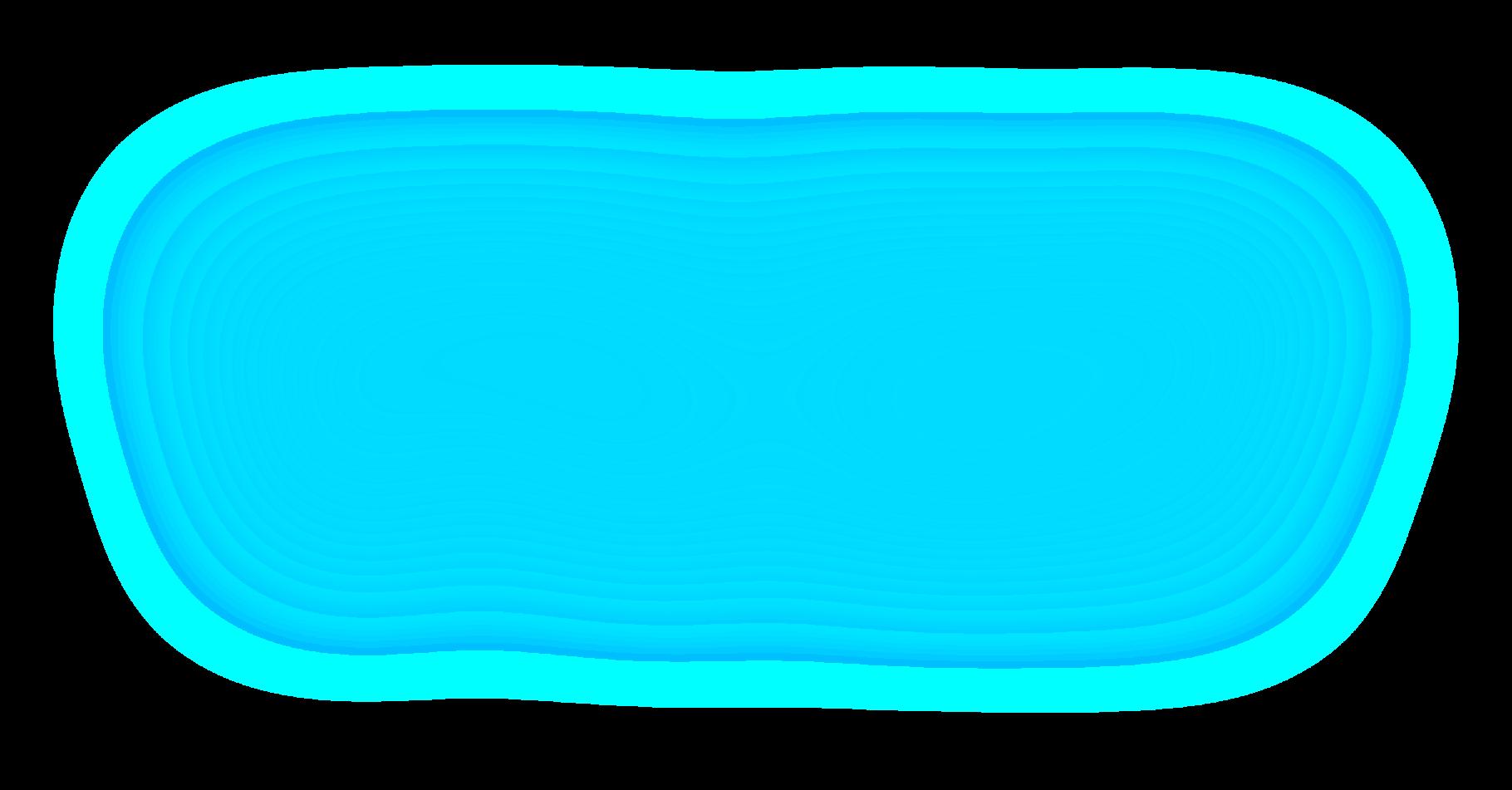
All books depict history, facts, theories, fiction or poetry. No book is coded with hidden messages beyond the words or patterns revealing marvels. But the Bible (Torah) was written by God, and is “coded.” The order of verses, use of certain phrases, apparent contradictions and other Biblical patterns are pur poseful clues to God’s wisdom.
This book unveils those patterns and shares the hidden messages.



The answer to all these questions can be approached by first looking at one peculiar bit of information: the location where we are warned not to greet shadim. All the cases — pits, fields, mountain tops, night time — are cases of isolation. Either geographical isolation (mountain tops, pits/caves, or fields/deserts) or psychological isolation: at night.
Man is a social creature by definition, fears isolation more than anything. This is why solitary confinement is the worst punishment. Isolation is even recognized by the prophets as one of the worst situations, and requires one to Bench Gomel, (praising God for being saved) as we read in Psalms, 107:4, “They wandered in the wilderness, in the desolation of the path, they found no inhabited city.” Not finding inhabitants is utterly distressing, to the point that King David made mention of it here in Psalms.
When one is isolated, his acute desire for company causes him to project onto reality: he will think he sees someone. But it is all an illusion to satisfy his fear, his loneliness. Thus, what the Rabbis are telling us not to offer greetings to, is in fact our psychological fantasy, a “demon.” Giving greetings that which is a mirage, is crossing the line from fantasy to reality, one of our worst crimes. The Rabbis, knowing that these shadim are truly daydreams or illusions, warned us not to talk to them. Talking to a mirage elevates fantasy to reality. There are so many areas of Torah which deter man from living an illusory life, that the Rabbis saw it fit here too to remove us from this behavior. Talking to a phantom of the mind gives credence to it. Torah desires that man abandon all that is false, “midvar skeker tirchak; from falsehoods keep distant” (Exod. 23:7).
This now explains why the gemara in Gittin said that if there was a shadow, then it is a real person. You can then divorce the wife of this person in the pit, although you do not see him clearly.
We only rely on the man’s voice as being a real person when there’s no doubt he is real. If he might be my fantasy, the courts can’t divorce his wife based on a “maybe”….courts must be certain. So when one sees a “shadow of a shadow”—meaning great detail—then there’s no doubt there’s a real man dying in the pit saying “divorce my wife” so the courts can rely on my first-hand account. As he doesn’t want his wife trapped in a marriage if his body cannot be verified, the man dying in the pit yells out to divorce his wife. When a person creates these illusions to comfort himself, that people are in
fact around, he only creates the minimal information needed to convince himself of this. That is, either a form of the person’s face, his height, his hair color, or something else distinct to the person he desires to be around. But what is not needed, is not created, such as a shadow. This offers the person no comfort, and is therefore not created by the fantasy. Therefore, if one sees a shadow, it is a real person. The gemara goes on to suggest that even shadim have shadows. This means that in some cases, one will create a more defined illusion. This is possible, so the gemara adds that when there's a “shadow of a shadow,” for certain, it is not a shade. Shadow of a shadow means that completely detailed illusions do not exist, and hence, it must be a real person one is seeing, and greetings are then permitted, and divorce is warranted.
It now makes sense that shadim don’t enter cities. Deciphered, this metaphor means that images of friends are not created when they are nearby, as is found when we are in cities. Here, no need exists in our psyches to create illusions. At night however, when we are psychologically alone, or in the mentioned isolated locations, we will create images to comfort us.
In summary, the Rabbis teach that shadim are not evil creatures or monsters; such beings exist only in fairy tales. Rather, they are psychological illusions created to comfort extreme loneliness. They are fantasies created in our minds. And the Rabbis warned us not to cross the line with a greeting, thereby treating fantasy as reality.
Rashi states (Gen. 6:19) that Noach took two of every species into the ark, “even shadim.”
This fits in well with our theory. Noach was now embarking on a state of isolation. Rashi is intimating this aspect of isolation by suggesting metaphorically that Noach brought shadim into the ark.■

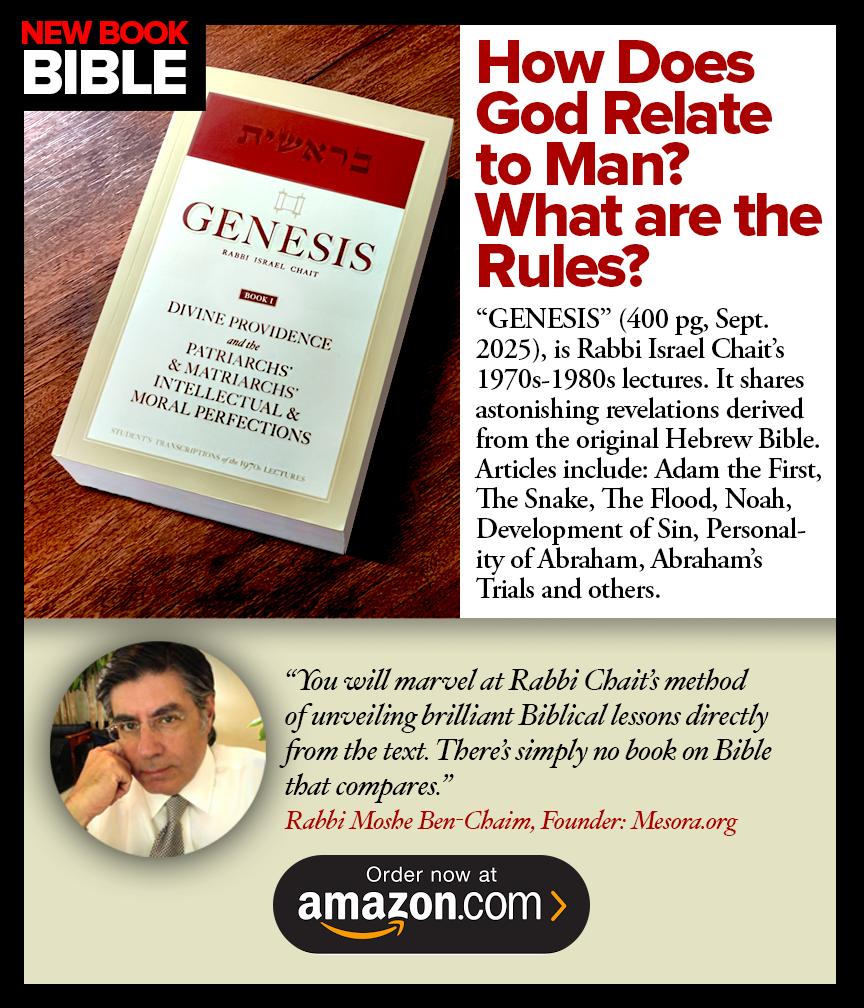

RABBI MOSHE BEN-CHAIM
“Religion” refers to a lifestyle of submission to a benevolent authority, designed and transmitted by the author. All religions except Judaism claiming to be God’s only true religion lack validation. Judaism is the only religion with proof of Divine origin. This proof is demonstrated through God’s revelation of His existence and His communication to 2.5 million Jews on Mount Sinai exactly 3338 years ago. The Jews witnessed an intelligent voice speaking from within the fiery mountain. Biological or earthbound life cannot exist in fire, precisely why God used fire in this event. No other religion makes such a claim to possess proof because Divine revelation never happened to others, and as Torah (Bible) says, “A great voice never to reoccur” (Deut. 4:32-34, 5:19).
Judaism is the only religion whose claim is supported by world acceptance of Torah. This acceptance is a 100% proof of God’s revelation to the Jewish people. Had Revelation at Sinai never occurred, it would not have been believed by that generation, and certainly not the rest of the world and all future generations. The only way Revelation at Sinai became accepted is because it was witnessed, and then all witnesses passed the story down to the following generations through today. God wished that this event remain a 100% proof throughout all generations. Had a false prophet attempted to
convince any group that they witnessed what they had not, they would never accept him, nor would they replace their known history with the false prophet’s lies. A unanimous identical transmission of a witnessed event occurs only when that event occurred. Unanimous transmission—a single Biblical account—is proof of the truth of Revelation at Sinai. God revealed Himself to masses only once: to the Jews on Mt. Sinai, where He gave the Jews His Bible.
All other religions are founded on a single person’s claim (or a fabricated story) that God communicated with him. Something of this nature cannot be proven, and is precisely why they formulated their religions with the demand for “blind faith.” Those religions did spread, but not due to witnessed events. Those religions spread as they appealed to human emotions. People will accept what is pleasing. Someone dying for my sins is very appeal ing. Praying to a tangible human figure is more pleasing than praying to an invisible and abstract God. But not one other religion can provide evidence of Divine communica tion. Therefore, there is no basis to accept their religions. Furthermore, as God designed only one human being, multiple religions is nonsensical. Just as all people are treated identically for cancer, all people will find the happiest life with the same religious system.
Judaism is also unique in its intellectual and brilliant design, in its basis in reason and proof, and in its full compliance with human nature, offering real happiness and no conflict with human nature. Judaism is founded on principles which are rational and comply with man’s nature as a philosophical and psychological being. Not one law in all of Judaism goes against man’s nature. Unlike Catholicism which frowns upon divorce and praises celibacy, Judaism embraces the need at times for couples to divorce if they will be happier that way, and Judaism also embraces man’s need for sexual happiness and children. These are just two examples of how Judaism approaches life honestly. Catholicism makes man into a mystical and infallible saint or an angel, one who is above actual human drives and emotions. This opposes Judaism, and true human nature. Judaism accepts that man’s happiness must stem from being in line with human nature. And Judaism doesn’t hide our leaders’ sins. We the Bible, the Jewish religion.



RABBI MOSHE BEN-CHAIM

man’s failure “You can't fix what is crooked and what is lacking you can't count.” This states the reason why all that man does is is a vexation of his spirit and is futile, for whatever he chases is crooked, it inherently cannot provide happiness, like the pursuit of money and lusts, which end in frustration. Something which is lacking is a quantitative critique, “that cannot be counted” means man assumes happiness will be secured with greater quantity of times performing something: “next time it'll be better.” King Solomon teaches two reasons why man's pursuits are vexation: 1) the very quality of the act cannot give any satisfaction; 2) man's assumption that repetition will increase his happiness is false. ■
A major theme of the High Holidays is Abraham's perfection in his trial of sacrificing his son Isaac. During our prayers we blow the ram's horn associated with the sacrifice of Isaac and that ram, through which God considers our value of Isaac's sacrifice as if we sacrificed ourselves (Rosh Hashanna 16a). It is then appropriate and behooves us to focus on Abraham's trials in general and understand the primary lessons.
Abraham endured severe difficulties through which he remained loyal to God. But why should he remain loyal? Is it because the trial exposes Abraham to his shortcomings and then he conquers them? Thus, trials are situation that Abraham or others could not produce on their own, nor think about on their own and therefore require God's intervention to help them reach a higher level otherwise unattainable.
For example, Rabbi Chait explained that the trial of being faced with a famine addressed a misconception Abraham harbored: when following God’s directives, all should go well. But this is a baseless assumption about how God operates, which no man can know. When confronted with that famine while following God's mission, Abraham immediately recognized this idolatrous type of thinking and conquered that emotion. He discovered that man can never know how God will operate. In contrast the sacrifice of Isaac was not a trial regarding misconceptions, but about his attachment to God compared to his love for his son. Here, Abraham demonstrated how man can be more devoted to God than to his own child. Man is capable of being more attached to the ideas than to the emotions, and to the greatest degree as in sacrificing one's own child.
What was the trial when Sarah died after learning that Isaac was almost sacrificed? And what was the trial of Pharaoh taking Sarah? In all trials we must identify what element of Abraham’s personality was improved, or what misconceptions he ultimately rejected as false due to the trial.
Even though it was the only choice for survival, choosing Egypt over definite starvation in Canaan was still a life risk due to the Egyptians’ primitive behavior. Perhaps the trial was whether Abraham would opt for divine intervention and remain in Canaan, or follow natural order and seek food even at the risk of life. This precisely is the dispute between Ramban and Rav Moshe Feinstein. God's directive was that Abraham go to Canaan. A foolish view would be to take that as an unconditional command and remain, even if it meant certain death due to famine. But an intelligent view would be to consider the circumstances and even to argue with God's directive if circumstances were threatening. Rabbi Chait said that a prophet does not blindly follow as God says, but uses his mind to think into it. Even after God gives a directive the prophet must still use his mind and follow what it is intelligence says. We see many prophets like Jonah, Samuel, Abraham and Moses who argued with God. Thus, the trial is whether a person will blindly follow God without question, or reason with God until his mind complies. ■
Is Judaism mystical, or is it rational, based on reason and proofs?
